- Home
- Quizzes
- My Quiz Activity
- Newsletters
- Sports Betting
- MY FAVORITES
- Add Sports/Teams
- SPORTS
-
NFL
- NFL Home
- Arizona Cardinals
- Atlanta Falcons
- Baltimore Ravens
- Buffalo Bills
- Carolina Panthers
- Chicago Bears
- Cincinnati Bengals
- Cleveland Browns
- Dallas Cowboys
- Denver Broncos
- Detroit Lions
- Green Bay Packers
- Houston Texans
- Indianapolis Colts
- Jacksonville Jaguars
- Kansas City Chiefs
- Las Vegas Raiders
- Los Angeles Chargers
- Los Angeles Rams
- Miami Dolphins
- Minnesota Vikings
- New England Patriots
- New Orleans Saints
- New York Jets
- New York Giants
- Philadelphia Eagles
- Pittsburgh Steelers
- San Francisco 49ers
- Seattle Seahawks
- Tampa Bay Buccaneers
- Tennessee Titans
- Washington Commanders
-
MLB
- MLB Home
- Arizona Diamondbacks
- Atlanta Braves
- Baltimore Orioles
- Boston Red Sox
- Chicago White Sox
- Chicago Cubs
- Cincinnati Reds
- Cleveland Guardians
- Colorado Rockies
- Detroit Tigers
- Houston Astros
- Kansas City Royals
- Los Angeles Angels
- Los Angeles Dodgers
- Miami Marlins
- Milwaukee Brewers
- Minnesota Twins
- New York Yankees
- New York Mets
- Oakland Athletics
- Philadelphia Phillies
- Pittsburgh Pirates
- San Diego Padres
- San Francisco Giants
- Seattle Mariners
- St. Louis Cardinals
- Tampa Bay Rays
- Texas Rangers
- Toronto Blue Jays
- Washington Nationals
-
NBA
- NBA Home
- Atlanta Hawks
- Boston Celtics
- Brooklyn Nets
- Charlotte Hornets
- Chicago Bulls
- Cleveland Cavaliers
- Dallas Mavericks
- Denver Nuggets
- Detroit Pistons
- Golden State Warriors
- Houston Rockets
- Indiana Pacers
- Los Angeles Clippers
- Los Angeles Lakers
- Memphis Grizzlies
- Miami Heat
- Milwaukee Bucks
- Minnesota Timberwolves
- New Orleans Pelicans
- New York Knicks
- Oklahoma City Thunder
- Orlando Magic
- Philadelphia 76ers
- Phoenix Suns
- Portland Trail Blazers
- Sacramento Kings
- San Antonio Spurs
- Toronto Raptors
- Utah Jazz
- Washington Wizards
-
NHL
- NHL Home
- Anaheim Ducks
- Boston Bruins
- Buffalo Sabres
- Calgary Flames
- Carolina Hurricanes
- Chicago Blackhawks
- Colorado Avalanche
- Columbus Blue Jackets
- Dallas Stars
- Detroit Red Wings
- Edmonton Oilers
- Florida Panthers
- Los Angeles Kings
- Minnesota Wild
- Montreal Canadiens
- Nashville Predators
- New Jersey Devils
- New York Islanders
- New York Rangers
- Ottawa Senators
- Philadelphia Flyers
- Pittsburgh Penguins
- San Jose Sharks
- Seattle Kraken
- St. Louis Blues
- Tampa Bay Lightning
- Toronto Maple Leafs
- Utah Hockey Club
- Vancouver Canucks
- Vegas Golden Knights
- Washington Capitals
- Winnipeg Jets
- NCAAF
- NCAAM
- Olympics
- Boxing
- Entertainment
- Lifestyle
- Golf
- MMA
- Soccer
- Tennis
- Wrestling
- More Sports
- RESOURCES
- My Account
- YB on Facebook
- YB on Twitter
- YB on Flipboard
- Contact Us
- Privacy Policy
- Terms of Service
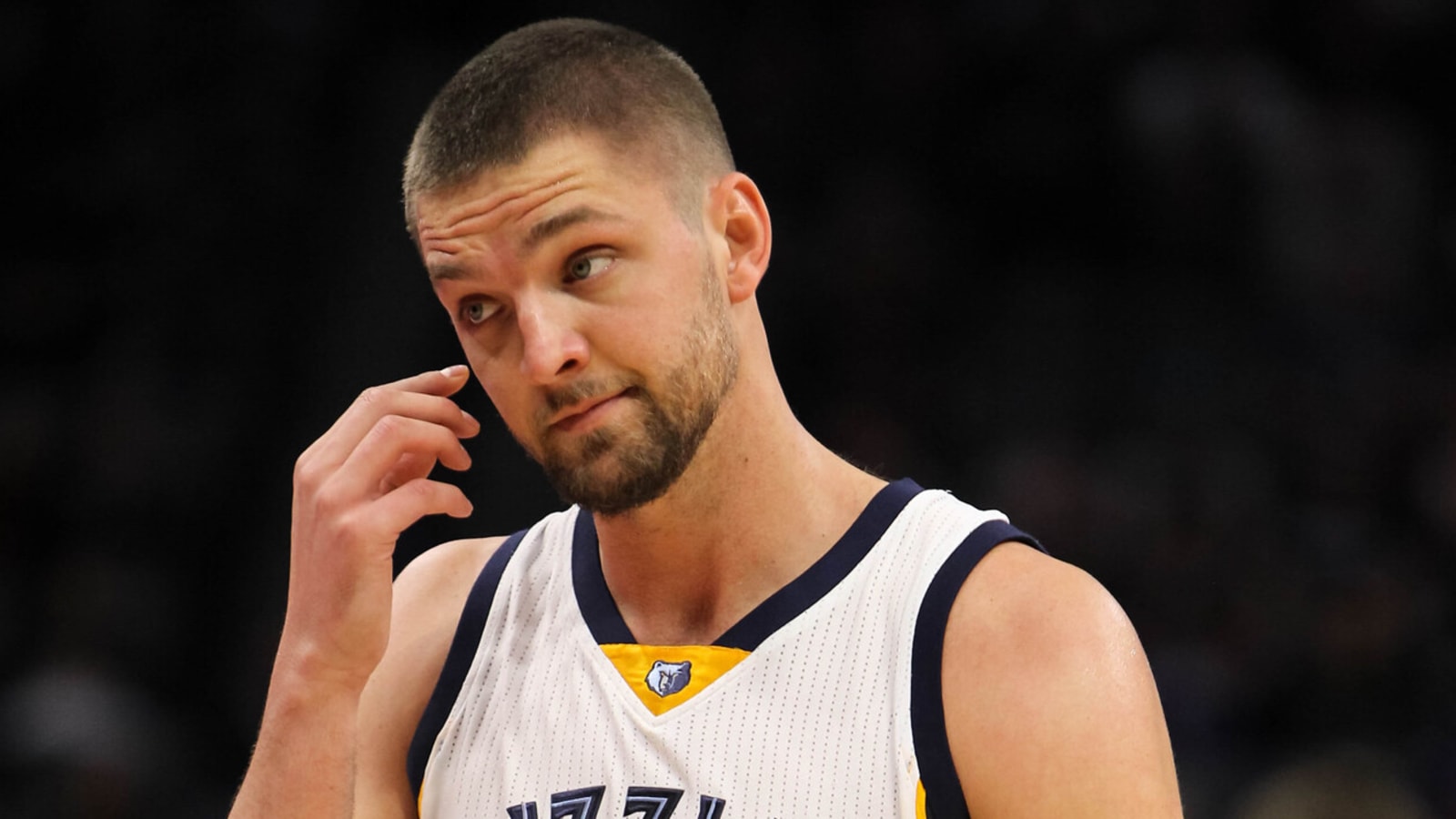
The 25 worst NBA contracts ever signed
There is no shortage of cautionary fiduciary tales in basketball history. You've got the Gilbert Arenas deal in Washington, a six-year, $111 million nightmare after which he sat out almost a whole season and then had an Old West-style armed standoff in the locker room. There are bad contracts due to injuries — Bill Walton on the Clippers and Grant Hill in Orlando — overrated reserves — backup center Jon "Contract" Koncak getting $13 million from the Hawks — and ill-advised contract provisions — the Warriors giving rookie Chris Webber a 15-year deal with an opt-out after only one season. Anytime the salary cap suddenly goes way up, look out. The cap spike in 2016 let the Warriors sign Kevin Durant, but it opened the door for the Lakers to sign Mozgov and Luol Deng. The cap giveth, and the cap taketh away. Let's look at some of the worst-ever NBA contracts.
Jon Koncak, 1989: six years, $13 million
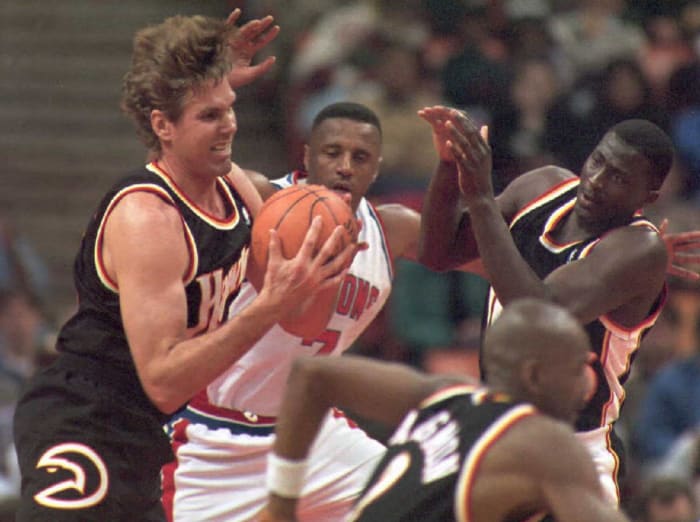
The advent of restricted free agency in 1988 led to some strange signings, but none more than the six years and $13 million the Hawks gave to fifth-year player Jon Koncak in 1989, after he'd averaged 4.7 points and 6.1 rebounds the previous season. He'd never match those meager numbers over the life of the contract, which was more than Michael Jordan's or Larry Bird's salaries at the time. After he signed this deal, he was forever known as “Jon Contract.” Reportedly high school star Shaquille O’Neal saw how much the thoroughly mediocre Koncak was making and decided to quit football then and there to preserve his basketball future.
Ben Wallace, 2006: Four years, $60 million
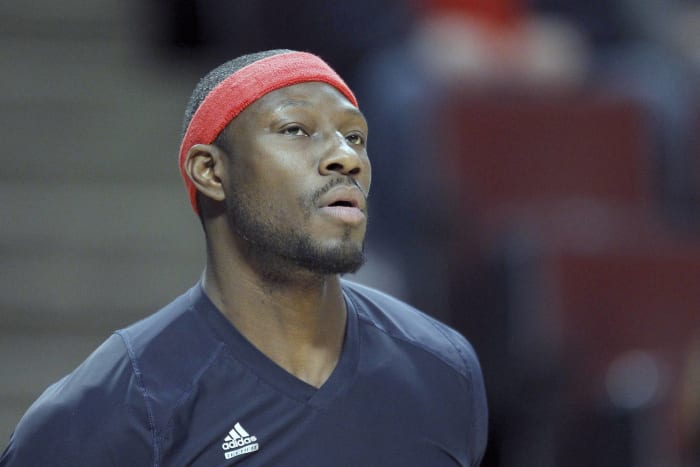
Ben Wallace was a great player who should be in the Hall of Fame, but at age 31 in 2006 he was starting to decline. That didn't stop the Bulls from giving him a four-year deal for $60 million, even though they already had a younger, cheaper, taller and better version of Big Ben in Tyson Chandler, who was only 23 and had five years left on his contract. The Bulls dumped him on New Orleans for P.J. Brown and J.R. Smith, whom they ALSO discarded. A year-and-a-half later, Big Ben was a Cavalier. The Pistons still went to the conference finals without him and only really blew it when they traded Chauncey Billups for Allen Iverson. Proving they’d learned nothing, the Bulls gave Wallace's teammate Richard Hamilton way too much money five years later.
Todd MacCulloch, 2001: six years, $34 million

After the 76ers went to the NBA Finals in 2001, the Nets gave Todd MacCulloch an offer sheet for six years and $34 million, which the luxury tax-averse Sixers declined to match. While MacCulloch was solid in his first season in New Jersey, starting 61 games for a team that went to the NBA Finals, things fell apart quickly. He was diagnosed with a neurological disorder called Charcot-Marie-Tooth disease, which led to his retirement after playing just 96 games. That’s over $350,000 per game. MacCulloch used some of those earnings to buy more than 80 pinball machines for his Washington home — he’s a nationally ranked player — and a Slurpee machine.
Chris Webber, 1993: 15 years, $74.4 million
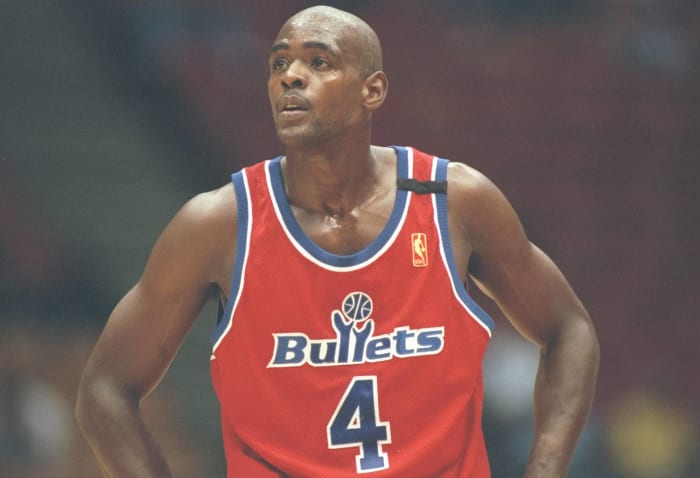
Before the NBA instituted a rookie salary scale in 1995, signing a lottery pick was difficult. That explains why the Golden State Warriors would give No. 1 pick Chris Webber a 15-year deal for $74.4 million before he played an NBA game. But why did they also include a clause that let him opt out after the first year and become a restricted free agent? Webber threatened to exercise the clause and forced a trade to Washington, and the Warriors ended up with Tom Gugliotta, who lasted only through February with the team. The deal did give them a first-round pick who became Vince Carter, but the Warriors traded him too.
Gilbert Arenas, 2007: six years, $111 million
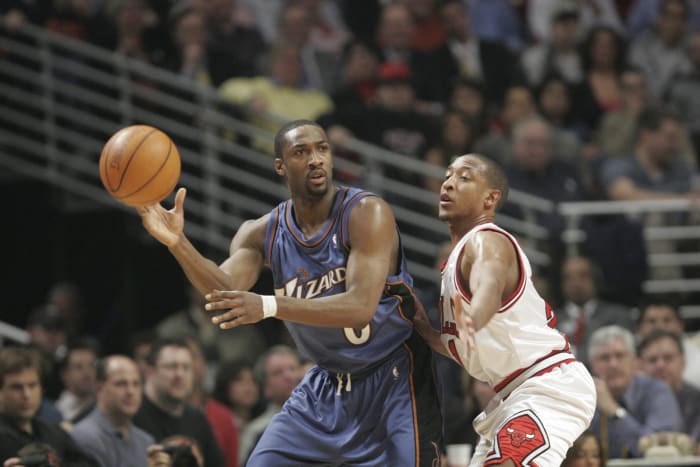
Gilbert Arenas played just eight games in the 2007-08 season after a knee injury, but the Wizards still gave him a six-year deal for $111 million. He was hurt even before he signed the massive extension, and his knee never really got better. Arenas also had an armed standoff in the Wizards locker room over a card game on the team plane with Javaris Crittenton, who is currently in prison for murder. Arenas also demanded the Wizards sign Antawn Jamison as a condition of his return, and that four-year, $50 million deal wasn't great either. The Arenas contract was so punishing that the Wizards were bad enough to get the No. 1 pick two years later and draft John Wall, whose dual injuries last year make it likely that his supermax extension ends up on this list.
Bill Walton, 1979: seven years, $7 million
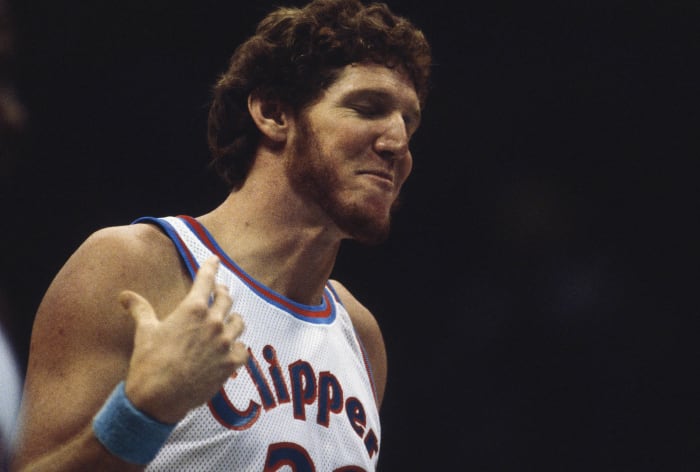
After Bill Walton demanded a trade due to the Blazers' handling of his injuries, he sat out the entire 1978-79 season in protest. Portland finally acceded to his wishes and dealt him to the San Diego Clippers in exchange for Kermit Washington, Kevin Kunnert and a No. 1 pick. Walton played only 14 games in the first year of the deal — he got hurt in the fourth exhibition game, and foot surgeries cost him the entire next two seasons as well. Walton believes his crippling contract and all the missed games killed basketball in San Diego, as the struggling team moved to Los Angeles before his deal was through. Incidentally, if you think player movement is bad now, a year before Walton signed this deal, the Celtics and Buffalo Braves swapped their entire franchises to facilitate the Braves' move to San Diego.
Jim McIlvaine, 1996: seven years, $33.6 million
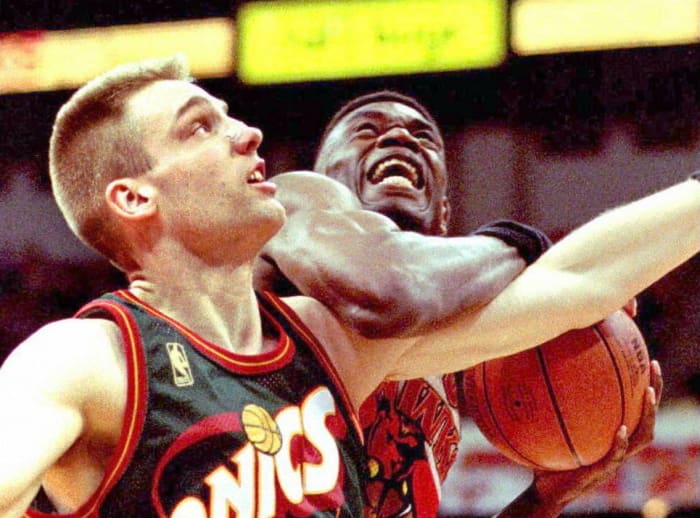
When Jim McIlvaine signed a seven-year deal for $33.6 million with Seattle in 1996, it marked the beginning of the end for the Sonics' near-dynasty of the 1990s. The problem with this contract wasn’t so much the value, though it was way too much for a guy who played less than 15 minutes a game. The real issue was that superstar Shawn Kemp was suddenly making less than five of his teammates and couldn't renegotiate his deal for another year. In his first year in Seattle, McIlvaine set a career high in points, although because he was Jim McIlvaine, that was only 3.8 points per game. Two years into the deal, the Sonics dumped his contract on the Nets, and McIlvaine was done playing two years before his contract expired.
Shawn Kemp, 1997: seven years, $107 million

The Sonics traded Shawn Kemp to Cleveland in a three-way deal that netted them Vin Baker. Kemp promptly signed a seven-year deal for $107 million with the Cavs, and in his first season he made the All-Star team while leading them to the playoffs. But in the lockout-shortened 1998-99 season, Kemp reported to training camp at a whopping 315 pounds. Somehow he still racked up a career-high 20.5 points a game, but the athletic "Reign Man" was gone for good. Cleveland traded him to Portland in 2000, where Kemp checked into rehab for cocaine addiction before the season was over.
Tom King, 1946: one year, $16,500
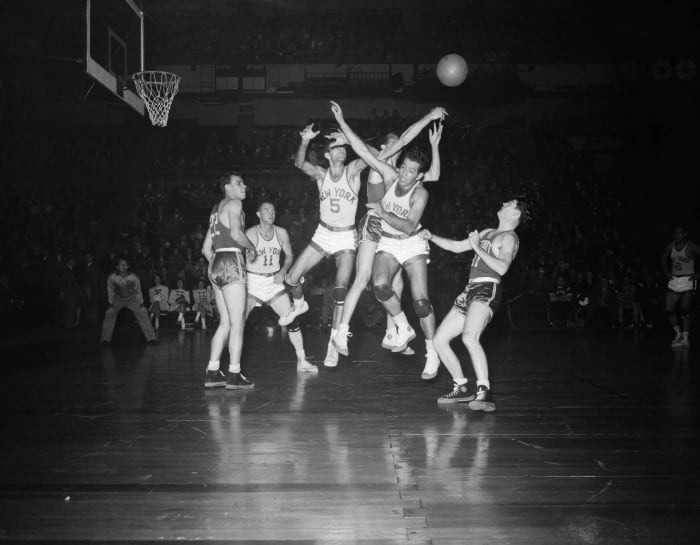
Look, his salary wasn't much by today's standards, but in 1946-47, rookie Tom King of the Detroit Falcons was the highest-paid player in the Basketball Association of America, the forerunner to the NBA. The salary cap was only 55 grand, so he was making 30 percent of the salary cap due to his additional jobs as the Detroit Falcons' publicity director and business manager. In 2019 30 percent of the salary cap is what you get if you win an MVP or make the All-NBA team multiple times. King averaged 5.1 points and shot 23.7 percent in the only year of his career, and the Falcons folded after the season, meaning this contract was a failure on all fronts.
Allan Houston, 2001: six years, $100 million
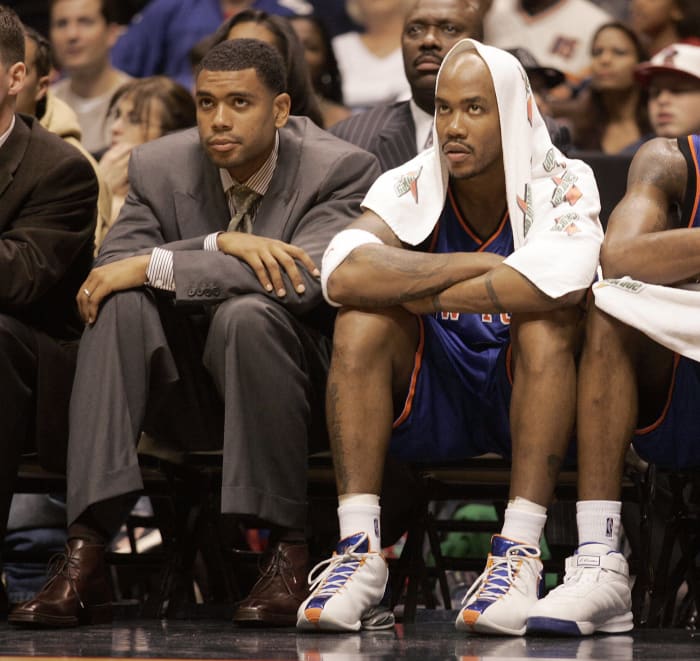
Allan Houston was a fine player for the New York Knicks, making two All-Star teams and hitting a clutch shot to beat the Heat as the Knicks went to the Finals in 1999. But he was also 30 years old and decidedly not a superstar. That didn't stop the Knicks from kicking off a decade full of terrible financial decisions by giving Houston six years and nine figures in 2001. Houston was steady for two years and then hurt his knee and was never the same player again. His contract became such a millstone that the league created an amnesty provision in the collective bargaining agreement, colloquially known as the "Allan Houston Rule." In a testament to the relentlessly terrible management of the Knicks, they chose insurance payments for Houston's knee over cap relief and used the Allan Houston Rule to waive...Jerome Williams.
Josh Smith, 2013: four years, $54 million

Josh Smith could do a lot of things well on a basketball court: run, block shots and dunk. But he never realized the things he was bad at: shooting three-pointers, dribbling and paying attention on defense. When he signed with the Pistons in 2013 on a four-year, $54 million deal, it was a bad time to be a small forward who couldn't shoot threes, which is the position he had to play alongside Andre Drummond and Greg Monroe in Detroit. His first year didn't go well, as he clashed with teammates and simply didn't fit on offense. Smith's defense was fine, but he shot 26 percent from three-point range. When Stan Van Gundy replaced Joe Dumars, he simply cut Smith one-third of the way through the season. Detroit compounded its salary cap woes by stretching the deal, which means that even though Josh Smith has moved on to the BIG3, the Pistons are still paying him this year.
Chandler Parsons, 2016: four years, $94 million
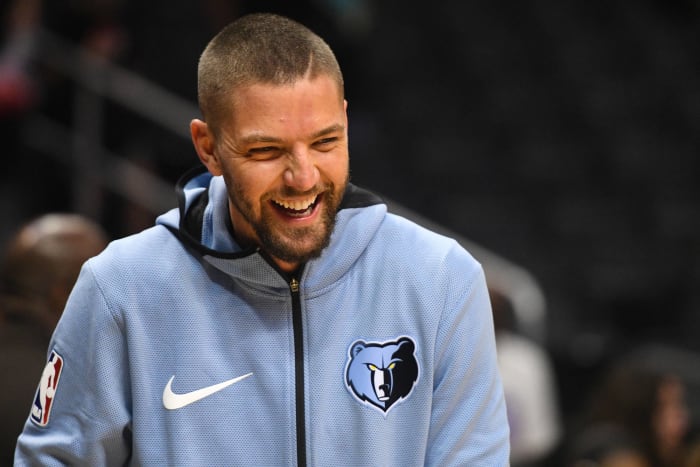
It's incredible that Chandler Parsons signed a contract with Dallas in a strip club, and it's not nearly the worst free-agency decision associated with him. After two unspectacular years with the Mavs, where he got hurt in the 2015 playoffs and missed the end of the 2015-16 season with knee surgery, Parsons opted out of his deal and signed a giant four-year, $94 million deal with Memphis. His knee never got better, and Parsons played only 95 games in his three seasons. The deal torpedoed the Grizzlies, who went into full rebuild mode and lost Marc Gasol and Mike Conley. Memphis dumped his contract on the Hawks, who will pay him $25 million this year to barely play.
Jayson Williams, 1999: six years, $86 million
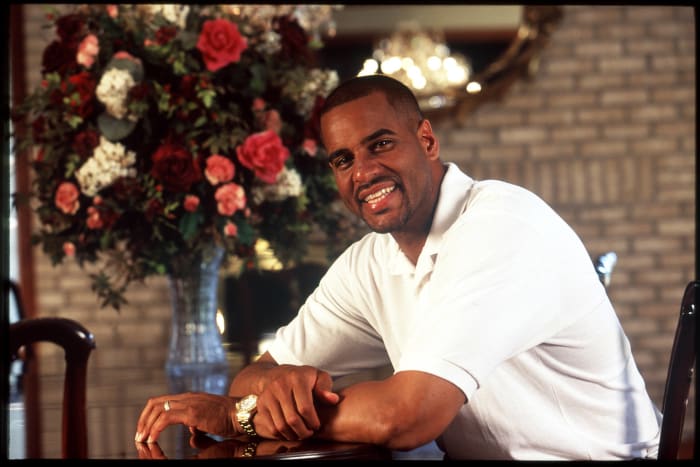
There was no better time to be a big man coming off a career year than the late '90s, to which Jayson Williams can attest. The 30-year-old Williams made his lone All-Star team in 1998, when he also led the league in offensive rebounding. After the season the Nets signed him to a six-year, $86 million contract to keep him in New Jersey long term. Less than three months later, Williams broke his leg after colliding with teammate Stephon Marbury. Williams had a plate inserted in his leg the next day and never played in the NBA again. Less than a year after that, Williams accidentally shot his limo driver while playing with a shotgun and eventually served more than two years in prison, which is even worse than salary cap hell.
Grant Hill, 2000: seven years, $93 million
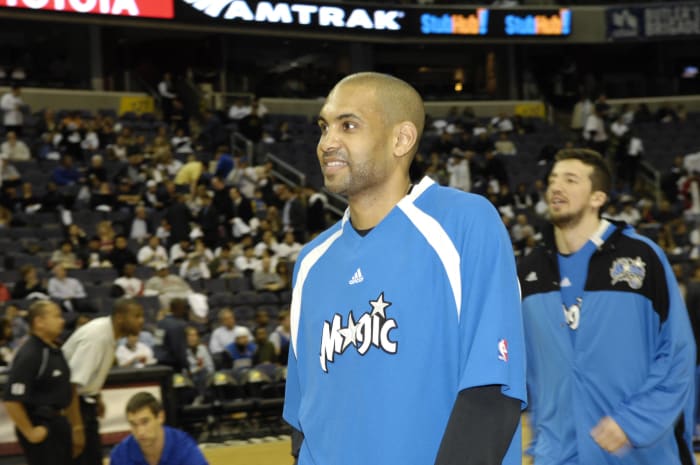
It’s not fair to fault Grant Hill for the disappointment of his Orlando years: He signed with the Magic at age 27, right in the middle of his prime, to play alongside emerging superstar Tracy McGrady. No one realized that the ankle injury Hill suffered in the last week of the 1999-2000 season would persist for more than four years. Hill played a total of 47 games, missing the entirety of the 2003-04 season after he nearly died from a post-surgery staph infection. Hill did start the All-Star Game in 2005 and finally got healthy only in his final year in Orlando. Amazingly he went on to play past his 40th birthday — just not for the Magic.
Penny Hardaway, 1999: seven years, $86.7 million

Penny Hardaway had worn out his welcome in Orlando when the Magic swapped him to Phoenix in 1999 for two players and two first-round picks. He got a maximum deal from the Suns — seven years and $86.7 million — and formed “Backcourt 2000” with Jason Kidd, who in honor of that terrible nickname had bleached his hair blonde. This was two years after Penny had suffered a terrible knee injury in Orlando, and by the second year of the contract he’d had two microfracture surgeries on one knee. And in 2000, microfracture was the orthopedic equivalent of using leeches. Two years later the Suns had swapped Kidd for Stephon Marbury but then reset fully by trading both Marbury and Hardaway to the Knicks.
Eddy Curry, 2005: six year, $60 million

There are so many bad Knicks contracts for big men that it's hard to choose. We're going with Eddy Curry over the inexplicable Jerome James contract the year before (five years and $30 million) just because of the trade cost. Curry was a young center who'd led the Bulls to the playoffs at age 22 before getting sidelined with an irregular heartbeat. Even though doctors cleared him to play, the Bulls demanded a DNA test to check for a congenital heart condition before they'd give Curry an extension. Instead the Knicks traded for Curry and gave him $60 million and also traded what turned out to be the No. 2 pick in the draft to Chicago (LaMarcus Aldridge, whom Chicago would trade to Portland; whoops). Curry could score, but that's all he could do — no defense, no rebounding — and the Isiah Thomas-era Knicks were no place for a young player to develop. By 2008 Curry weighed more than 330 pounds and was out of the rotation. He returned 70 pounds slimmer and won a ring with Miami in 2012, although he didn't play in a single playoff game.
Joakim Noah, 2016: four years, $72 million

There's simply no way to justify the Knicks' signing of a washed-up Joakim Noah to a four-year, $72 million contract in the summer of 2016, when many of the most heinous deals on our list were signed. Noah's body was so beat up that he played only 29 games the year before, so the Knicks ccouldn't have been blindsided when he played only 40 total minutes in the second year of his deal. That’s $450,000 per minute! For his entire Knicks career, he played just 95 games. Noah later admitted that his penchant for partying contributed to his struggles in New York, but he nonetheless got the full value of his contract when the Knicks released him last fall.
Timofey Mozgov and Luol Deng, 2016: four years, $136 million combined

When Kobe Bryant's massive final contract/retirement bonus came off the books in the summer of 2016, the Lakers were ready — ready to blow all their newfound cap space on some washed-up veterans. The Lakers gave Mozgov four years and $64 million at the beginning of free agency despite him being off the court in two straight Finals — he played only 25 minutes when Cleveland upset the Warriors in 2016. One year later, they gave up D’Angelo Russell, the No. 2 pick from the 2015 draft, to get rid of his contract. Deng got $72 million after averaging 12.3 points in Miami and then played just 79 games for the Lakers. It was misguided: Deng was no longer any kind of star, and he was 31. Plus he used to play for Tom Thibodeau, which meant his real NBA age was about 36. The contracts cost the Lakers about the same, as they managed to squeeze $7.5 million from Deng in a buyout by threatening to bury him on the bench.
Omer Asik, 2015: four years, $44 million guaranteed (five/60 with incentives)

The Rockets poached Omer Asik from the Bulls with a poison pill contract in 2012, where the third year of the deal spiked greatly in value. They managed to pawn off the final year of the deal onto the New Orleans Pelicans, who sent back a first-round pick, one of many they sent away in the Anthony Davis era. Then they compounded the error by giving Asik four years and $44 million guaranteed, with incentives that could have made it worth $60 million for five years. (Asik did not come anywhere near these incentives.) After the first year, Asik barely played despite Davis' aversion to playing center. They did manage to flip him for Nikola Mirotic in 2018, which cost them (what else?) a first-round pick.
Joe Smith, 1999: one year, $1.75 million (secretly seven years, $86 million)

Joe Smith was the No. 1 pick in the 1995 draft and should have been a hot commodity when he became a free agent after the lockout in 1999. Instead he signed a one-year deal with Minnesota, followed by another one-year deal for $2.1 million the next year. Why? Because he and his agent had struck a secret, under-the-table deal for a seven-year, $86 million deal, but Smith signed one-year deals to circumvent the salary cap and gain "Bird rights" with the Timberwolves. When the agent for Smith (and Kevin Garnett) left his old firm, the old agent sued, and the illegal deal was revealed. The owner and GM were suspended, and the Wolves lost four of their next five first-round picks, gutting the team just as KG was hitting his prime. Arguably the contract ruined Minnesota basketball for over a decade. It also cost Smith himself, who eventually returned to Minnesota on a much smaller six-year, $34 million deal.
Bryant Reeves, 1997: Six years, $61.8 million

Bryant Reeves was the first pick in Vancouver Grizzlies history, and after two seasons, they inked their baby-faced, flat-topped center to a six-year, $65 million contract. But Reeves was never much for offseason conditioning: He ate a lot of cheeseburgers and claimed he couldn't work out during the summer because his hometown of Gans, Oklahoma (population: 300), didn't have anyone he could play basketball against or a gym where he could exercise. Reeves may have been as heavy as 315 pounds after the lockout, and he's probably the last NBA player who chewed tobacco. Not surprisingly, Reeves' body broke down prematurely, and after a back injury in 2001, he retired, after playing just three-and-a-half years of that contract.
Darius Miles, 2004: Six years, $48 million
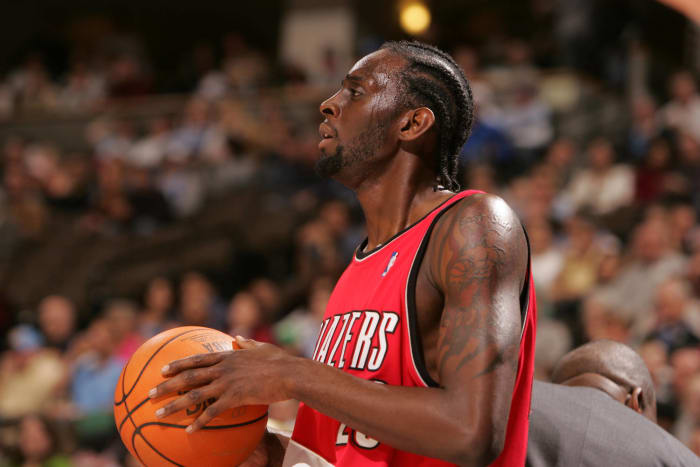
Prep-to-pros sensation Darius Miles was only 23 years old when the Portland Trail Blazers gave him a six-year, $48 million contract in 2004, the same year he made his big screen debut in "The Perfect Score." Miles' time in Portland was far from perfect, as he feuded with coach Maurice Cheeks, though he did score 47 points in a game once. In the second year of his deal, Miles severely injured his knee, and after the dreaded microfracture surgery he missed the rest of the year and the next two seasons. After four years, the Blazers succeeded in a petition to get the remainder of Miles' $18 million off their cap and then threatened to sue any team that signed him. It didn't work, as Miles made a brief comeback with Memphis, which cost it a minimum salary and cost Portland $18 million plus luxury tax.
Stephen Jackson, 2008: Three years, $27.6 million
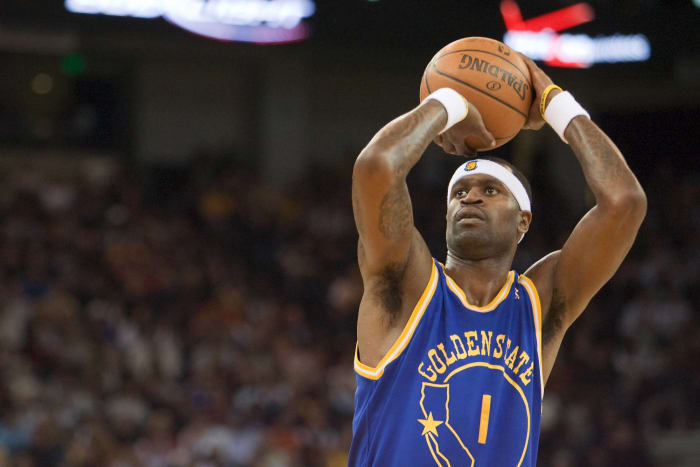
Stephen Jackson was a really good player, but the decision to extend his contract in 2008 made no sense. Stack Jack was 30 years old and under contract for two more seasons — why the urgency to lock him in past his 35th birthday? One year after this extension, Jackson demanded a trade — a full year before this contract extension even kicked in. The Warriors traded him for Vladimir Radmanovic's bad contract, the Hornets swapped him for Corey Maggette's bad contract (also signed by the Warriors in 2008), he went back to the Warriors as a throw-in to the Andrew Bogut deal and then immediately was shipped to the Spurs for Richard Jefferson's bad contract. The Spurs continued the ignominious string by releasing him just before the playoffs in 2013.
Elton Brand, 2008: five years, $82 million
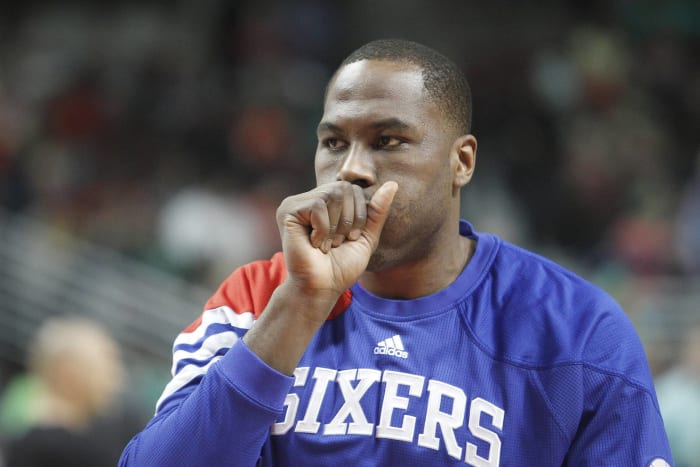
The five-year, $82 million contract Elton Brand signed with the Philadelphia 76ers is special because of the bad contract domino effect it caused. Originally Brand was going to re-sign with the Clippers and team up with free agent Baron Davis. But when Philly offered Brand an extra $7 million, he headed east. Brand was coming off a ruptured Achilles tendon and then separated his shoulder and missed most of his first year in Philly. He was released via the amnesty clause in 2012. Davis still held up his end, signing a five-year, $65 million deal with the Clippers, but infamous Clippers owner Donald Sterling quickly turned on him, heckling and insulting Davis from his courtside seats. (Davis said it was like being in the sunken place.) The Clippers eventually gave Cleveland a first-round pick to take Davis' contract — which turned into the No. 1 pick in the 2011 draft, Kyrie Irving. Meanwhile the Warriors, panicked about losing Davis or perhaps in a revenge move, signed Corey Maggette away from the Clippers for five years and $50 million. He spent the last three years of the deal getting traded for other bad contracts, but he did win a BIG3 title with Power in 2018.
Bismack Biyombo and Ian Mahinmi, 2016: $68 million and $64 million

The four-year deals handed out to Bismack Biyombo ($68 million) and Ian Mahinmi ($64 million) in 2016 were simply baffling. Biyombo had been a total bust since being drafted seventh overall in 2011 but apparently wowed the Magic with his strong playoff performance with the Raptors, including a 26-rebound game in the conference finals. Was that worth $18 million per season? Dear God, no. Biyombo can be a strong defender, but he's a horrendous offensive player. Plus, Orlando already had Nikola Vucevic at center! Meanwhile, Mahinmi got $64 million from Washington seemingly because it'd already budgeted the money for Al Horford. Washington also already had a starting center: Marcin Gortat. Mahinmi has missed 42 percent of Washington's games since he signed, and as a result of his millstone of a contract, the Wizards gave away Otto Porter, an actual good player, to Chicago for free just to cut payroll.
Sean Keane is a sportswriter and a comedian based in Oakland, California, with experience covering the NBA, MLB, NFL and Ice Cube’s three-on-three basketball league, The Big 3. He’s written for Comedy Central’s “Another Period,” ESPN the Magazine, and Audible.com. His debut album “America’s Uncle Dad” debuted at No. 1 on the iTunes comedy chart and since 2016, he’s co-hosted the NBA podcast “Roundball Rock. In 2014, the San Francisco Bay Guardian named Keane an “Outstanding Local Discovery” and promptly went out of business.
More must-reads:
- 'Blackballed'? Please. Here's why Carmelo Anthony has no place in NBA.
- One-on-One: We absolutely can't unsee Lakers' offseason circus
- The 'Highest-paid players in the NBA' quiz
Breaking News
Customize Your Newsletter
 +
+
Get the latest news and rumors, customized to your favorite sports and teams. Emailed daily. Always free!
Use of this website (including any and all parts and
components) constitutes your acceptance of these
Terms of Service and Privacy Policy.
This site is for entertainment purposes only.
There is no gambling offered on this site.
Gambling Problem? Call 1-800-Gambler.
